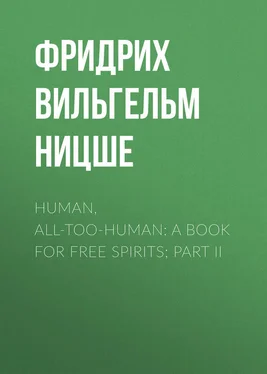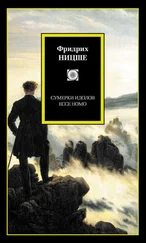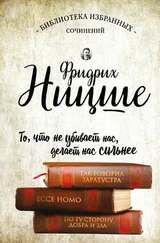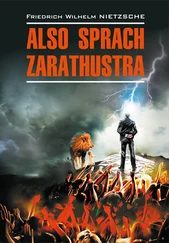Фридрих Ницше - Human, All-Too-Human - A Book For Free Spirits; Part II
Здесь есть возможность читать онлайн «Фридрих Ницше - Human, All-Too-Human - A Book For Free Spirits; Part II» — ознакомительный отрывок электронной книги совершенно бесплатно, а после прочтения отрывка купить полную версию. В некоторых случаях можно слушать аудио, скачать через торрент в формате fb2 и присутствует краткое содержание. Жанр: Философия, literature_19, foreign_antique, foreign_prose, на английском языке. Описание произведения, (предисловие) а так же отзывы посетителей доступны на портале библиотеки ЛибКат.
- Название:Human, All-Too-Human: A Book For Free Spirits; Part II
- Автор:
- Жанр:
- Год:неизвестен
- ISBN:нет данных
- Рейтинг книги:3 / 5. Голосов: 1
-
Избранное:Добавить в избранное
- Отзывы:
-
Ваша оценка:
- 60
- 1
- 2
- 3
- 4
- 5
Human, All-Too-Human: A Book For Free Spirits; Part II: краткое содержание, описание и аннотация
Предлагаем к чтению аннотацию, описание, краткое содержание или предисловие (зависит от того, что написал сам автор книги «Human, All-Too-Human: A Book For Free Spirits; Part II»). Если вы не нашли необходимую информацию о книге — напишите в комментариях, мы постараемся отыскать её.
Human, All-Too-Human: A Book For Free Spirits; Part II — читать онлайн ознакомительный отрывок
Ниже представлен текст книги, разбитый по страницам. Система сохранения места последней прочитанной страницы, позволяет с удобством читать онлайн бесплатно книгу «Human, All-Too-Human: A Book For Free Spirits; Part II», без необходимости каждый раз заново искать на чём Вы остановились. Поставьте закладку, и сможете в любой момент перейти на страницу, на которой закончили чтение.
Интервал:
Закладка:
Friedrich Wilhelm Nietzsche
Human, All-Too-Human: A Book For Free Spirits; Part II
Translator's Introduction
The publication of Human, all-too-Human extends over the period 1878-1880. Of the two divisions which constitute the Second Part, “Miscellaneous Maxims and Opinions” appeared in 1879, and “The Wanderer and his Shadow” in 1880, Nietzsche being then in his thirty-sixth year. The Preface was added in 1886. The whole book forms Nietzsche's first lengthy contribution to literature. His previous works comprise only the philological treatises, The Birth of Tragedy , and the essays on Strauss, Schopenhauer, and Wagner in Thoughts out of Season .
With the volumes of Human, all-too-Human Nietzsche appears for the first time in his true colours as philosopher. His purely scholarly publications, his essays in literary and musical criticism – especially the essay on Richard Wagner at Bayreuth – had, of course, foreshadowed his work as a thinker.
These efforts, however, had been mere fragments, from which hardly any one could observe that a new philosophical star had arisen on the horizon. But by 1878 the period of transition had definitely set in. Outwardly, the new departure is marked by Nietzsche's resignation in that year of his professorship at Bâle – a resignation due partly to ill-health, and partly to his conviction that his was a voice that should speak not merely to students of philology, but to all mankind.
Nietzsche himself characterises Human, all-too-Human as “the monument of a crisis.” He might as fitly have called it the first-fruits of a new harvest. Now, for the first time, he practises the form which he was to make so peculiarly his own. We are told – and we may well believe – that the book came as a surprise even to his most intimate friends. Wagner had already seen how matters stood at the publication of the first part, and the gulf between the two probably widened on the appearance of the Second Part.
Several aphorisms are here, varying in length as in subject, and ranging over the whole human province – the emotions and aspirations, the religions and cultures and philosophies, the arts and literatures and politics of mankind. Equally varied is the range of style, the incisive epigram and the passage of pure poetry jostling each other on the same page. In this curious power of alternating between cynicism and lyricism, Nietzsche appears as the prose counterpart of Heine.
One or two of the aphorisms are of peculiar interest to English readers. The essay (as it may almost be called) on Sterne (p. 60, No. 113) does ample justice, if not more than justice, to that wayward genius. The allusion to Milton (p. 77, No. 150) will come as somewhat of a shock to English readers, especially to those who hold that in Milton Art triumphed over Puritanism. It should be remembered, however, that Nietzsche's view coincides with Goethe's. The dictum that Shakespeare's gold is to be valued for its quantity rather than its quality (p. 81, No. 162) also betrays a certain exclusiveness – a legacy from that eighteenth-century France which appealed so strongly to Nietzsche on its intellectual side. To Nietzsche, as to Voltaire, Shakespeare is after all “the great barbarian.”
The title of the book may be explained from a phrase in Thus Spake Zarathustra : “Verily, even the greatest I found – all-too-human.” The keynote of these volumes is indeed disillusion and destruction. Nor is this to be wondered at, for all men must sweep away the rubbish before they can build. Hence we find here little of the constructive philosophy of Nietzsche – so far as he had a constructive philosophy. The Superman appears but faintly, the doctrine of Eternal Recurrence not at all. For this very reason, Human, all-too-Human is perhaps the best starting-point for the study of Nietzsche. The difficulties in style and thought of the later work – difficulties that at times become well-nigh insuperable in Thus Spake Zarathustra – are here practically absent. The book may, in fact, almost be described as “popular,” bearing the same relation to Nietzsche's later productions as Wagner's Tannhäuser and Lohengrin bear to the Ring .
The translator's thanks are due to Mr. Thomas Common for his careful revision of the manuscript and many valuable suggestions.
P. V. C.
Preface
One should only speak where one cannot remain silent, and only speak of what one has conquered – the rest is all chatter, “literature,” bad breeding. My writings speak only of my conquests, “I” am in them, with all that is hostile to me, ego ipsissimus , or, if a more haughty expression be permitted, ego ipsissimum . It may be guessed that I have many below me… But first I always needed time, convalescence, distance, separation, before I felt the stirrings of a desire to flay, despoil, lay bare, “represent” (or whatever one likes to call it) for the additional knowledge of the world, something that I had lived through and outlived, something done or suffered. Hence all my writings, – with one exception, important, it is true, – must be ante-dated – they always tell of a “behind-me.” Some even, like the first three Thoughts out of Season , must be thrown back before the period of creation and experience of a previously published book ( The Birth of Tragedy in the case cited, as any one with subtle powers of observation and comparison could not fail to perceive). That wrathful outburst against the Germanism, smugness, and raggedness of speech of old David Strauss, the contents of the first Thought out of Season , gave a vent to feelings that had inspired me long before, as a student, in the midst of German culture and cultured Philistinism (I claim the paternity of the now much used and misused phrase “cultured Philistinism”). What I said against the “historical disease” I said as one who had slowly and laboriously recovered from that disease, and who was not at all disposed to renounce “history” in the future because he had suffered from her in the past. When in the third Thought out of Season I gave expression to my reverence for my first and only teacher, the great Arthur Schopenhauer – I should now give it a far more personal and emphatic voice – I was for my part already in the throes of moral scepticism and dissolution, that is, as much concerned with the criticism as with the study of all pessimism down to the present day. I already did not believe in “a blessed thing,” as the people say, not even in Schopenhauer. It was at this very period that an unpublished essay of mine, “On Truth and Falsehood in an Extra-Moral Sense,” came into being. Even my ceremonial oration in honour of Richard Wagner, on the occasion of his triumphal celebration at Bayreuth in 1876 – Bayreuth signifies the greatest triumph that an artist has ever won – a work that bears the strongest stamp of “individuality,” was in the background an act of homage and gratitude to a bit of the past in me, to the fairest but most perilous calm of my sea-voyage … and as a matter of fact a severance and a farewell. (Was Richard Wagner mistaken on this point? I do not think so. So long as we still love, we do not paint such pictures, we do not yet “examine,” we do not place ourselves so far away as is essential for one who “examines.” “Examining needs at least a secret antagonism, that of an opposite point of view,” it is said on page 46 of the above-named work itself, with an insidious, melancholy application that was perhaps understood by few.) The composure that gave me the power to speak after many intervening years of solitude and abstinence, first came with the book, Human, All-too Human , to which this second preface and apologia 1is dedicated. As a book for “free spirits” it shows some trace of that almost cheerful and inquisitive coldness of the psychologist, who has behind him many painful things that he keeps under him, and moreover establishes them for himself and fixes them firmly as with a needle-point. Is it to be wondered at that at such sharp, ticklish work blood flows now and again, that indeed the psychologist has blood on his fingers and not only on his fingers?
Читать дальшеИнтервал:
Закладка:
Похожие книги на «Human, All-Too-Human: A Book For Free Spirits; Part II»
Представляем Вашему вниманию похожие книги на «Human, All-Too-Human: A Book For Free Spirits; Part II» списком для выбора. Мы отобрали схожую по названию и смыслу литературу в надежде предоставить читателям больше вариантов отыскать новые, интересные, ещё непрочитанные произведения.
Обсуждение, отзывы о книге «Human, All-Too-Human: A Book For Free Spirits; Part II» и просто собственные мнения читателей. Оставьте ваши комментарии, напишите, что Вы думаете о произведении, его смысле или главных героях. Укажите что конкретно понравилось, а что нет, и почему Вы так считаете.












